 In an open acknowledgement that it cannot secure its pipeline system from plunder by criminal gangs, Mexico's state oil monopoly Pemex announced Feb. 18 that it will no longer pump refined gasoline and diesel through the duct network. Mexico lost $1.14 billion last year to pipeline thefts last year—a 70% increase over the previous year. This is an ominous sign that the drug cartels are becoming the real power on the ground throughout much of the country, and are moving beyond their mainstays of illicit substances to contraband control of legal commodities like oil and minerals, establishing a virtual parallel economy. Pemex will now only be sending "unfinished" fuel through its more than 14,000 kilometers of pipeline, reported El Universal. The company said in a statement: "Customers should make sure that the fuel they buy has been delivered from Pemex terminals, and not buy gasoline or diesel from anyone other than gas stations or authorized dealers, given that...it could damage motors."
In an open acknowledgement that it cannot secure its pipeline system from plunder by criminal gangs, Mexico's state oil monopoly Pemex announced Feb. 18 that it will no longer pump refined gasoline and diesel through the duct network. Mexico lost $1.14 billion last year to pipeline thefts last year—a 70% increase over the previous year. This is an ominous sign that the drug cartels are becoming the real power on the ground throughout much of the country, and are moving beyond their mainstays of illicit substances to contraband control of legal commodities like oil and minerals, establishing a virtual parallel economy. Pemex will now only be sending "unfinished" fuel through its more than 14,000 kilometers of pipeline, reported El Universal. The company said in a statement: "Customers should make sure that the fuel they buy has been delivered from Pemex terminals, and not buy gasoline or diesel from anyone other than gas stations or authorized dealers, given that...it could damage motors."

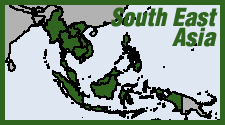 In another grim signal of a widening war in northern Burma's opium zones, last week saw an outbreak of intense fighting between government forces and ethnic rebels, prompting some 50,000 Kokang civilians to flee across the border to China. The clashes at the town of Laukkai (also rendered Laogai), Shan state, saw government air-strikes and helicopter strafing on villages controlled by the Kokang rebel group, the Myanmar National Democratic Alliance Army (MNDAA), and two allied militias. Some 50 government troops have been killed in the fighting, and soliders have recovered the bodies of several rebels. A line of refugees 10 kilometers long has reportedly piled up at the Chinese border crossing of Nansan. (
In another grim signal of a widening war in northern Burma's opium zones, last week saw an outbreak of intense fighting between government forces and ethnic rebels, prompting some 50,000 Kokang civilians to flee across the border to China. The clashes at the town of Laukkai (also rendered Laogai), Shan state, saw government air-strikes and helicopter strafing on villages controlled by the Kokang rebel group, the Myanmar National Democratic Alliance Army (MNDAA), and two allied militias. Some 50 government troops have been killed in the fighting, and soliders have recovered the bodies of several rebels. A line of refugees 10 kilometers long has reportedly piled up at the Chinese border crossing of Nansan. (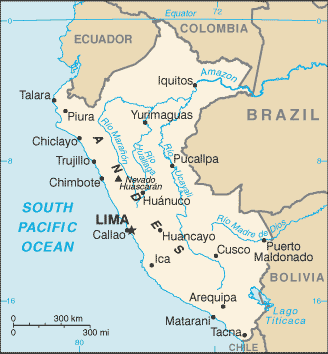 Authorities in Peru Feb. 4 announced the declaration of a no-fly zone over the conflicted coca-producing region known as the VRAEM, for the Valley of the Apurimac, Ene and Mantaro rivers, in the country's southeast jungles. The head of Peru's anti-drug agency
Authorities in Peru Feb. 4 announced the declaration of a no-fly zone over the conflicted coca-producing region known as the VRAEM, for the Valley of the Apurimac, Ene and Mantaro rivers, in the country's southeast jungles. The head of Peru's anti-drug agency 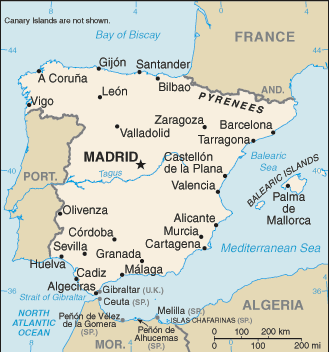 A helicopter loaded with Moroccan hashish crashed in southern Spain after hitting a power pylon, killing its two pilots, authorities said Jan. 28. The chopper went down in the wee hours near the mountain town of Cortes de la Frontera in Málaga province, apparently while takng evasive maneuvers as a Spanish
A helicopter loaded with Moroccan hashish crashed in southern Spain after hitting a power pylon, killing its two pilots, authorities said Jan. 28. The chopper went down in the wee hours near the mountain town of Cortes de la Frontera in Málaga province, apparently while takng evasive maneuvers as a Spanish  Identical twin brothers
Identical twin brothers 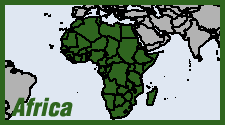 The brutal Boko Haram rebels are gaining ground at a frightening pace in northwest Nigeria, even mounting a bloody attack this week on the region's major city, Maiduguri. Reports are mounting that the exremist movement is funding its insurgency by exploiting Nigeria's strategic place as a crossroads of the global narco-traffick.
The brutal Boko Haram rebels are gaining ground at a frightening pace in northwest Nigeria, even mounting a bloody attack this week on the region's major city, Maiduguri. Reports are mounting that the exremist movement is funding its insurgency by exploiting Nigeria's strategic place as a crossroads of the global narco-traffick. 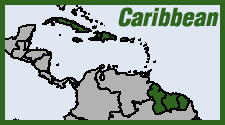 The Jamaican cabinet on Jan. 19 approved a bill to decriminalize possession of personal quantities of ganja (as the stuff is endearingly called in Jamaica's legal code). Beyond that, the bill would establish a Cannabis Licensing Authority to oversee cultivation, sale and distribution for medical, spiritual and industrial purposes. Possession of two ounces or less would be a ticketable infraction, leaving no criminal record. While public use would remain banned, the law would establish both a medicinal and religious defense, as well as permiting licensed cultivation of industrial hemp. The bill, officially the Dangerous Drugs (Amendment) Act of 2015, now goes to the Senate for approval. Justice Minister
The Jamaican cabinet on Jan. 19 approved a bill to decriminalize possession of personal quantities of ganja (as the stuff is endearingly called in Jamaica's legal code). Beyond that, the bill would establish a Cannabis Licensing Authority to oversee cultivation, sale and distribution for medical, spiritual and industrial purposes. Possession of two ounces or less would be a ticketable infraction, leaving no criminal record. While public use would remain banned, the law would establish both a medicinal and religious defense, as well as permiting licensed cultivation of industrial hemp. The bill, officially the Dangerous Drugs (Amendment) Act of 2015, now goes to the Senate for approval. Justice Minister 





Recent comments
6 days 9 hours ago
1 week 5 days ago
5 weeks 5 days ago
9 weeks 4 days ago
13 weeks 4 days ago
14 weeks 2 days ago
24 weeks 2 days ago
28 weeks 3 days ago
29 weeks 3 days ago
29 weeks 3 days ago